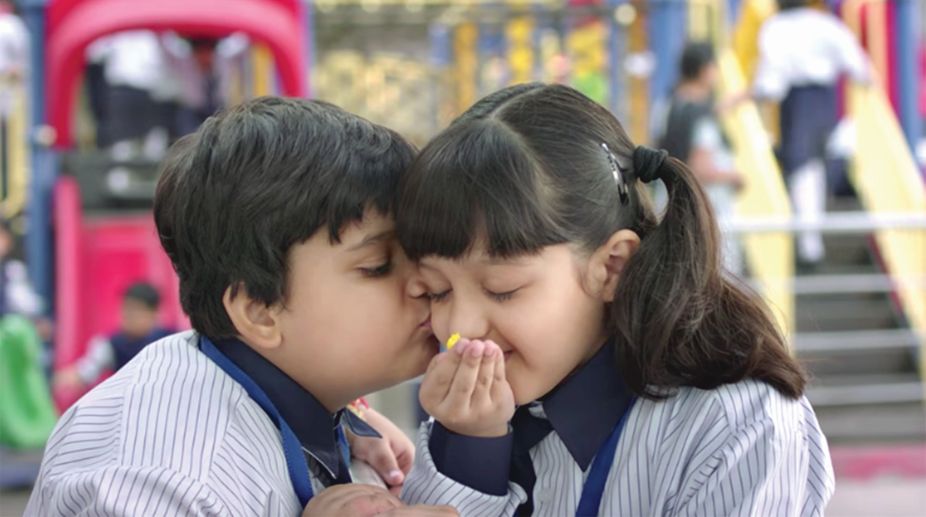Trends and opportunities defining school education in 2025
Looking at promising prospects of the education sector, here are the trends and opportunities that will be shaping 2025.

A still from Haami
One has to look at some of the recent films made by Nandita Ray and Shibaprasad Mukherjee to find justification for the absurd distortions inflicted on Haami.
The suggestion that it has been inspired by some unfortunate incidents that have polluted the environment in some schools and shaken the trust that parents should have in these institutions is tantamount to saying that creative liberties can be stretched to limits that lose sight of basic realities.
Advertisement
The directorial team has produced roaring successes with far-fetched conflicts in films like Belasheshey and Posto primarily by exploiting the sentiments that touch unthinking minds.
Advertisement
Whether history will repeat itself in the new film is less important than the fact that the screenplay plays around with the truth to an extent that makes Haami look like a smartly mounted exercise in sustained trivia.
This is not to say that the directors cannot cleverly conceal the homilies on school education, picking up from what has been happening in the recent past, with their own methods of popular exaggeration.
The focus here is on children whom we are expected to believe will indulge in the freedom to express themselves in their own way. Whether this amounts to the deliberate distortion of natural innocence is something that doesn’t concern the directors as long as there is one section of the audience that may be thrilled by the childish pranks.
There are some favourite, now familiar, situations like the child barging into the room just when the parents are sharing an intimate moment — supposedly one of the film’s comic moments.
The same boy demonstrates a special affection for a girl in his class by planting a harmless kiss on her cheeks—resulting in a prolonged debate between teachers and parents on the varying implications of an act ranging from purity to passion.
One can dismiss all this as mainstream fantasy with comic overtones had it not been for the sermons that are also delivered in all earnestness. For this the scriptwriters have to cook up a sensational episode of alleged molestation with visuals that have a disturbing connection with recent events.
To emphasise the contemporary relevance, there are further comments about inflated coverage in the mainstream media and the menace posed by irresponsible conduct on the digital platform.
All this takes the form of a hasty conglomeration of events ranging from boisterous fun to a violent reaction by adults to baseless rumours. It should leave the audience more confused than conscious about social responsibilities.
The narrative touch that had partly redeemed the directors’ earlier efforts has escaped the latest venture primarily because the issue is lost in a stream of excesses.
What could still please is the appropriate choice of lively music to match the opening impression of playful innocence and the final reaffirmation of human values. Otherwise it is a curious jumble that leaves less scope for the popular sentiments that have sold in the past.
The directors have thrived on mundane conflicts and, here too, there is the bizarre attempt to take personal rivalries among parents to impossible extremes. The film needs to be witnessed strictly at the level of popular fantasy — that is, if it finally becomes popular with the targeted audience.
Some of the cameos are promising like that of the councillor, played by Kharaj Mukherjee, who must sustain a crooked image while coping with the fiery outbursts of his wife. But Shibaprasad, the director who also plays one of the vital roles, has lost the sharp edges of the character that is a virtual extension of the one in Ramdhanu.
The earlier film was also about the tensions of sending one’s children to school and, with all its excesses that are an integral part of the work of this team, it had a ring of truth in the overall treatment.
This one makes no bones about going overboard and attempts a repetition of the solo performance by the father (Shibaprasad) in the principal’s office that is a poor reflection on the film’s statement as a whole.
Other characters too cannot escape the clichés that leave the film with virtually nothing to take away. The children have abundant doses of precociousness inflicted on them for a kind of excitement that robs them of natural warmth. Why the parents needed to be turned into sworn enemies while the teachers are drowned in aimless frivolity is something that is difficult to explain.
Talented performers like Churni Ganguly and Aparajita Addy (who had done exceptionally well in Praktan) are wasted. This is largely because the basic conception is weak and the characters have little or nothing to contribute to the film as a whole.
Finally, if the sermon becomes the best alternative to the narrative skill that is glaringly absent, that is hardly likely to grip the audience that had earlier been superficially touched by the human appeal.
Haami occupies an uncertain space between juvenile entertainment and contemporary social relevance. The complexity of issues that have developed around school education has nothing to do with the film’s priorities that lie elsewhere.
A film of this kind demanded a restrained and sensitive touch from the directors at least at the crucial junctures. For all the wisdom that is laced with frolic, they may have missed a trick.
Advertisement